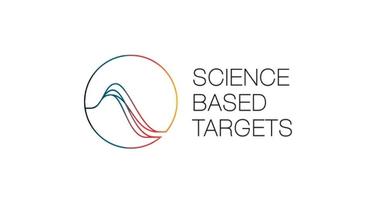Our approach to sustainability reporting
Being a responsible business means balancing the needs and expectations of society with our commitments to our business and our stakeholders. Reporting on our sustainability performance helps us to consider our impact on a range of issues and provides useful context to benchmark our activities.
We report against a range of highly-respected, globally-recognised standards to ensure a best-in-class approach, and we rely on our sustainability strategy and commitments to guide us in our responsible business practices.
The standards we measure ourselves against
Airbus measures its progress on sustainability against strict criteria codified in globally-recognised and highly-respected frameworks and standards. We approach our reporting from a standpoint of accuracy and transparency, and were the first aircraft manufacturer to disclose Scope 3 figures for the aircraft that we deliver to our customers.
We have been a supporter of the Task Force on Climate-related Financial Disclosures (TCFD) since December 2020. In addition, in 2022 we committed to having our near-term greenhouse gas emissions targets assessed by the Science Based Targets initiative (SBTi). These targets were approved by the SBTi in early 2023.
At Airbus, we're committed to applying strong principles to how we conduct our business and to challenging ourselves to go further in mitigating our environmental impact because we believe we can, and should, raise the bar on what’s possible in sustainability in our industry.
(Guillaume Faury, CEO Airbus)
Science Based Targets initiative
SBTi
Established in 2015, the Science Based Targets initiative (SBTi) helps companies to set emissions-reduction targets in line with climate science and the Paris Agreement goals. More than 4,000 companies have joined the initiative since its inception.

In 2022, Airbus officially committed to define science-based targets for the entire set of its emissions. The following near-term targets were submitted to the SBTi for assessment and were validated in early 2023. All reduction targets are based on 2015 as baseline year:
- Scopes 1 & 2: -63% absolute greenhouse gas emissions by 2030 and neutralisation of residual emissions
- Scope 3: -46% greenhouse gas emissions intensity generated by its commercial aircraft in service by 2035
Find out more about our emissions targets:
Other initiatives
Environmental, Social & Governance (ESG) ratings
Airbus’ performance is assessed by ratings agencies, analysts and other organisations. These performance scores help to benchmark our ESG activities and provide a point of comparison with other corporates in our sector and beyond.
| Index | Airbus rating |
|---|---|
CDP - Climate specific | B (2024) |
S&P Global CSA | 64/100 (Oct 2024) Listed in the DJSI World |
Moody’s ESG (ex Vigeo Eiris) | 66/100 (Jun 2024) Listed in the CAC 40 ESG index |
MSCI | A (Sep 2024) |
Sustainalytics | 26.2 (Sep 2023) |
Ecovadis | 75/100 (Aug 2024) Gold Medal (Top 5%) |
ISS ESG | C+ (Sep 2024) Prime Status |


















